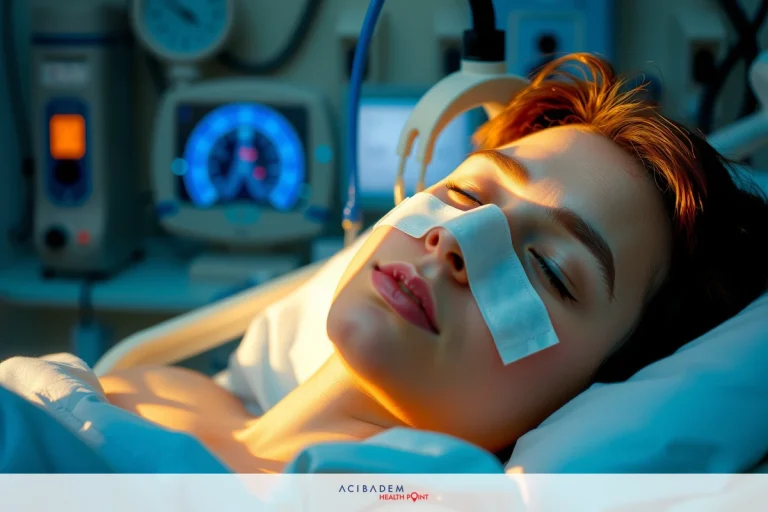When Can I Blow My Nose After Septoplasty Surgery?
When Can I Blow My Nose After Septoplasty Surgery? Septoplasty surgery is a widely performed procedure focused on enhancing nasal function, especially for individuals grappling with chronic sinusitis or respiratory issues. The surgery involves altering the septum – the cartilage and bone that separates your nostrils – to allow for better airflow. While this operation can greatly improve quality of life, it’s crucial to follow post-operative care instructions for a smooth recovery.
One of the most frequently asked questions after septoplasty concerns nose blowing. Patients often wonder when they will be able to blow their nose normally again without causing any harm or disrupting the healing process. This article aims to provide clear guidance on this issue based on standard medical advice and general recovery timelines after septoplasty surgery.
Recovery and Post-Operative Care
Septoplasty surgery is typically an outpatient procedure, meaning you’ll likely go home the same day. Once you’re discharged, the recovery process begins. The initial recovery period can take anywhere from one to two weeks. During this time, it’s normal to experience some swelling, discomfort, and nasal congestion. Your healthcare provider will give you specific instructions on how to manage these symptoms.
The post-operative care after septoplasty surgery is crucial for ensuring a successful outcome and reducing the risk of complications. You’ll be advised to avoid strenuous activities and heavy lifting for several weeks to prevent any undue pressure on your nose. Keeping your head elevated can also help decrease swelling and promote healing. It’s also essential to maintain hydration and eat a balanced diet to support your body’s healing process.
One of the most crucial aspects of post-operative care is how you handle nasal hygiene. It’s typically recommended that you refrain from blowing your nose for at least one week following surgery to protect the delicate surgical area. In place of nose blowing, you may be advised to use a saline nasal spray to keep your nasal passages moist and comfortable. It’s important to follow all of these recommendations as they are key components in your recovery after septoplasty surgery.
Healing Process
Understanding the healing process after septoplasty surgery can help you better navigate your recovery and give you a clearer idea of when it’s safe to resume normal activities, like nose blowing. The initial healing phase usually lasts for one to two weeks. During this time, the internal nasal tissues start repairing themselves, and the swelling gradually decreases. It’s during this phase that it’s crucial to avoid blowing your nose.
The subsequent stage of the healing process is characterized by the strengthening and stabilization of the nasal structures. This typically occurs in the weeks following the initial healing period. At this point, you might notice that your breathing starts to improve as the inflammation continues to subside. It’s at this juncture, usually around two to three weeks post-surgery, that gentle nose blowing may become permissible.
However, it’s important to remember that each person’s healing process is unique and can be influenced by various factors such as age, overall health status, and how closely post-operative care instructions are followed. Although general timelines offer a useful guide, knowing when it’s safe to blow your nose ultimately depends on your individual healing progression and your doctor’s advice. Always consult with your healthcare provider before resuming any activities that could potentially impact the surgical area.
Frequently Asked Questions
When can I blow my nose after septoplasty surgery?
It is generally recommended to avoid blowing your nose for at least one week following septoplasty surgery. This allows the nasal tissues to heal properly without any unnecessary strain or disruption. However, it's important to consult with your healthcare provider for personalized guidance based on your specific case.
Can I use a tissue to gently wipe my nose instead of blowing it?
It's best to avoid wiping your nose with a tissue immediately after septoplasty surgery, as it may cause irritation or disrupt the healing process. Instead, you can dab your nose lightly with a clean and soft cloth if necessary.
What should I do if I feel the need to clear my nasal passages during the recovery period?
If you experience nasal congestion or feel the need to clear your nasal passages, you can use a saline nasal spray as recommended by your healthcare provider. This helps keep your nasal passages moist and aids in relieving discomfort without the need for blowing your nose.
When can I resume normal daily activities following septoplasty surgery?
The timeline for resuming normal daily activities varies from person to person. In general, you should avoid strenuous activities, heavy lifting, and intense exercises for several weeks following surgery. It's crucial to follow your doctor's instructions and gradually reintroduce activities as they give you the green light based on your healing progress.
What are signs of complications that I should watch out for during the healing process?
While complications are rare, it's important to be aware of any unusual symptoms. If you experience severe pain, excessive bleeding, fever, or have concerns about your healing progress, contact your healthcare provider immediately. They will be able to assess your condition and provide appropriate guidance.











